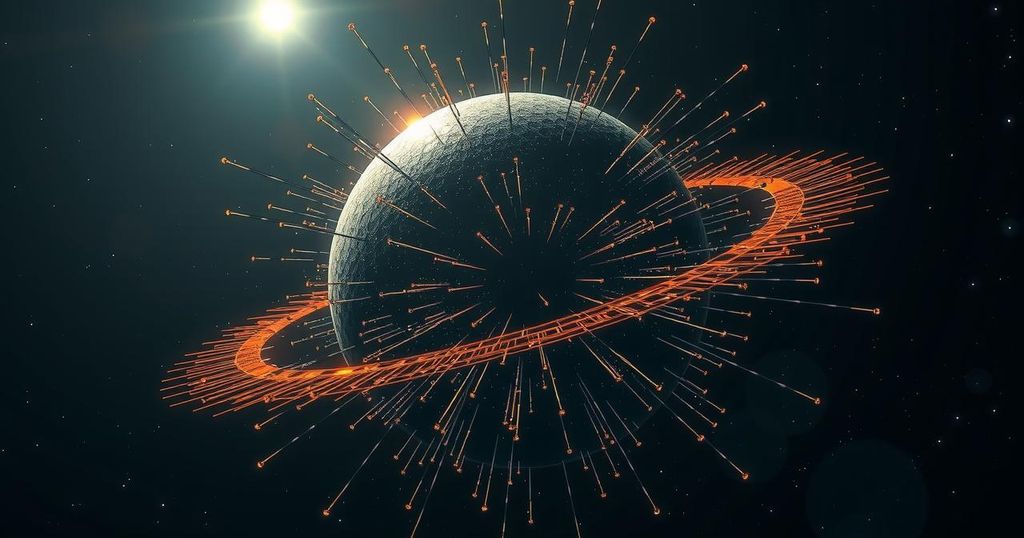Unveiling Extraterrestrial Intelligence: Dyson Spheres and Primordial Black Holes
This report investigates the possibility of discovering extraterrestrial artificial intelligence by examining Dyson sphere-like structures around primordial black holes. By proposing a new metric, the space exploration distance, related to the Kardashev scale, we explore how advanced civilizations might harvest energy from these enigmatic cosmic entities, ultimately leading to methods of detection that could unveil intelligent life beyond Earth.
The enigma of whether we are alone in the cosmos has tantalized humanity for ages. Our quest extends from the discovery of rudimentary life forms to the pursuit of sophisticated beings, and now intriguingly, artificial intelligence (AI) entrenched within advanced civilizations. By situating these civilizations within the framework of the Kardashev scale, we set the stage for exploring their potential energy sources. Promisingly, we propose that primordial black holes may serve as extraordinary energy reservoirs harvested by these civilizations. Our investigation leads to the derivation of a new metric—the space exploration distance—which correlates advancement and capacity for energy utilization. In a bid to unveil these possible extraterrestrial entities, we suggest an observational strategy focused on Dyson-like structures encircling primordial black holes across galaxies.
As we delve into this cosmic mystery, one can’t help but envision the silent dance of stars and black holes, each hiding secrets of civilizations with ambitions beyond our understanding. Imagine vast energy-harvesting structures shimmering around a dark primordial mass—an ideal setting for advanced intelligent life to thrive, perhaps even equipped with AI that transcends our current technological limits. Our work not only sheds light on the probable existence of such lifeforms but also lays the groundwork for their exploration and study, beckoning future astronomers to peer into the cosmic abyss in search of signs of sentience.
The intersection of astrophysics and the search for extraterrestrial intelligence has never been more vibrant. Each primordial black hole may cradle the potential for not just energy, but the very essence of intelligence that has voyaged beyond the reaches of our lonely Earth. As we position ourselves in this vast universe, we find ourselves pondering, with new tools and ideas, if we will ever detect the soft whispers of AI nestled among the stars.
Humanity’s enduring quest to uncover extraterrestrial life intersects with the realms of philosophy, science, and technology. This report focuses on the possibility that advanced civilizations, particularly those dominated by artificial intelligence, may harness primordial black holes as immense energy sources. Through the lens of the Kardashev scale, a framework categorizing civilizations by energy consumption, we introduce the concept of space exploration distance—a novel metric suggesting the link between civilization advancement and the capability to utilize distant cosmic phenomena. The quest extends to utilizing advanced observational techniques, possibly involving Dyson sphere-like structures that might reveal the existence of intelligent life forms throughout the universe.
In conclusion, our exploration illuminates the fascinating potential for detecting artificial intelligence among the stars by studying Dyson sphere-like constructs surrounding primordial black holes. The introduction of the space exploration distance offers a fresh perspective on the advancement of civilizations, suggesting they might harness otherworldly energy in their relentless pursuit of knowledge. This blend of astrophysics and astrobiology propels humanity’s search for extraterrestrial intelligence into a realm where imagination meets empirical investigation, challenging us to peer deeper into the cosmos.
Original Source: astrobiology.com




Post Comment